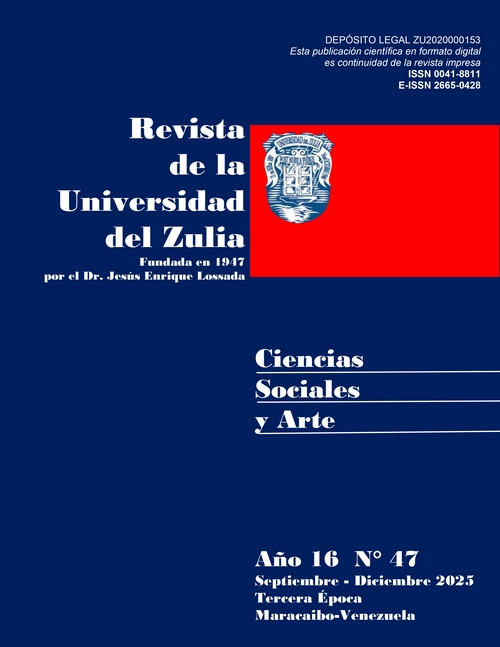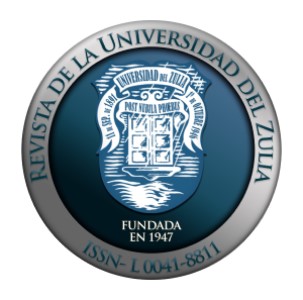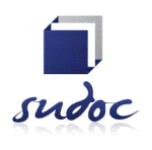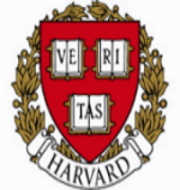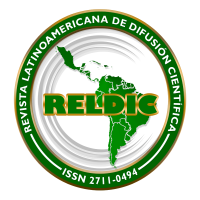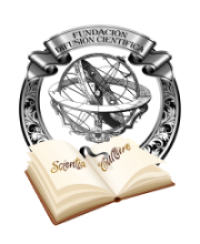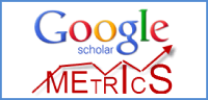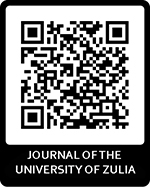Digital Academic Access and Reading Profile of Venezuelan High School Students: Reflections from the Theory of Communicative Action and Digital Academic Literacy
Abstract
This study analyzes the digital academic reading practices of Venezuelan secondary school students. Based on Habermas's Theory of Communicative Action and the New Literacy Studies, this research examines the digital access and reading practices of these students in their academic settings. Methodologically, it employed a qualitative, critical-interpretative approach, involving 19 students from a public institution located in Las Calderas, Falcón State, Venezuela. An 18-question questionnaire was used as a research tool to identify students' digital academic reading practices in the school context. For the analysis and interpretation of the data, critical hermeneutics was employed under the Habermasian conception, based on the idea of hermeneutic moments: preconception, comprehension, interpretation, and self-understanding-reflection. The results indicate that students access digital technologies, especially smartphones and computers, but primarily carry out these practices at home, with school serving as a secondary space. While students demonstrate hyperconnectedness, expanding the scope of school learning through reading and internet browsing activities, it is argued that schools must assume a central and critical role, reflecting on online discourses and strengthening digital academic literacy.
Downloads
References
Araújo, J., & Leffa, V. (Eds.). (2016). Redes sociais e ensino de línguas: O que temos de aprender? Parábola.
Bautista, S., Medina, C., & Moreno, H. (2014). La lectura crítica en internet en la educación media. Actualidades Pedagógicas, 63, 83-98. https://doi.org/10.19052/ap.2669
Boyd, D. (2014). It’s complicated: The social lives of networked teens. Yale University Press.
Castells, M. (1999). A sociedade em rede. Paz e Terra.
Centro Regional para el Fomento del Libro en América Latina y el Caribe (Cerlalc) & UNESCO. (2014). Metodología común para explorar y medir el comportamiento lector: El encuentro con lo digital. http://cerlalc.org/estudiosyestadisticas/2015/10/07/metodologia-comun-para-explorar-y-medir-el-comportamiento-lector-el-encuentro-con-lo-digital-2/
Díaz Loyo, C. E. ., & Anecleto, Úrsula. (2020). Práticas discursivas de docentes no ensino médio na esfera digital: mudanças e experiências durante a pandemia na Venezuela. H2D|Revista De Humanidades Digitais, 2(2). https://doi.org/10.21814/h2d.2861
Díaz Loyo, C. E., Zárraga de Díaz, E. G., & Anecleto, Úrsula. (2025). Leitura acadêmica digital nos livros didáticos de ensino médio venezuelano. InterMeio: Revista Do Programa De Pós-Graduação Em Educação - UFMS, 30(60), 152-174. https://doi.org/10.55028/intermeio.v30i60.22420
Floridi, L., et al. (2015). The onlife manifesto: Being human in a hyperconnected era. Springer.
Habermas, J. (2014). Conhecimento e interesse (Luiz Repa, Trad.). Editora Unesp.
Habermas, J. (2022). Teoria da ação comunicativa: Racionalidade da ação e racionalização social (Luiz Repa, Trad.). Editora Unesp.
Habermas, J. (2023). Uma nova mudança estrutural da esfera pública e a política deliberativa (D. L. Werle, Trad.). Editora da Unesp.
Diaz, C. (2024). Letramento acadêmico digital no ensino médio venezuelano: Contribuições da ação comunicativa para a prática de leitura emancipativa [Tesis de Doctorado, Universidade Estadual de Feira de Santana].
Lévy, P. (2009). Cibercultura. Editora 34.
Manguel, A. (1996). A history of reading. Viking Penguin.
Manguel, A. (2017). O leitor como metáfora: O viajante, a torre e traça. Edições SESC São Paulo.
Mercado, L. P. L. (2001). A internet como ambiente de pesquisa na escola. Presença Pedagógica, 7(38), 53-65.
Morozov, E. (2011). The net delusion: The dark side of internet freedom. PublicAffairs.
Ninin, M. O. G. (2008). Pesquisa na escola: Que espaço é esse? O do conteúdo ou o do pensamento crítico? Educação em Revista, 48, 17–35.
Santaella, L. (2013). Comunicação ubíqua: Repercussões na cultura e na educação. Paulus.
Scolari, C. A. (2018). Adolescentes, medios de comunicación y culturas colaborativas: Aprovechando las competencias transmedia de los jóvenes en el aula. Comisión Europea, H2020.
Thompson, C. (2013). Smarter than you think: How technology is changing our minds for the better. The Penguin Press.
Wolf, M. (2019). O cérebro no mundo digital: Os desafios da leitura na nossa era. Editora Contexto.
Copyright (c) 2025 Carlos Eduardo Díaz Loyo, Úrsula Cunha Anecleto, Egledys Guadalupe Zarraga de Díaz

This work is licensed under a Creative Commons Attribution-NonCommercial-ShareAlike 4.0 International License.
Copyright
The Revista de la Universidad del Zulia declares that it recognizes the rights of the authors of the original works published in it; these works are the intellectual property of their authors. The authors preserve their copyright and share without commercial purposes, according to the license adopted by the journal..
This work is under license:
Creative Commons Reconocimiento-NoComercial-CompartirIgual 4.0 Internacional (CC BY-NC-SA 4.0)


